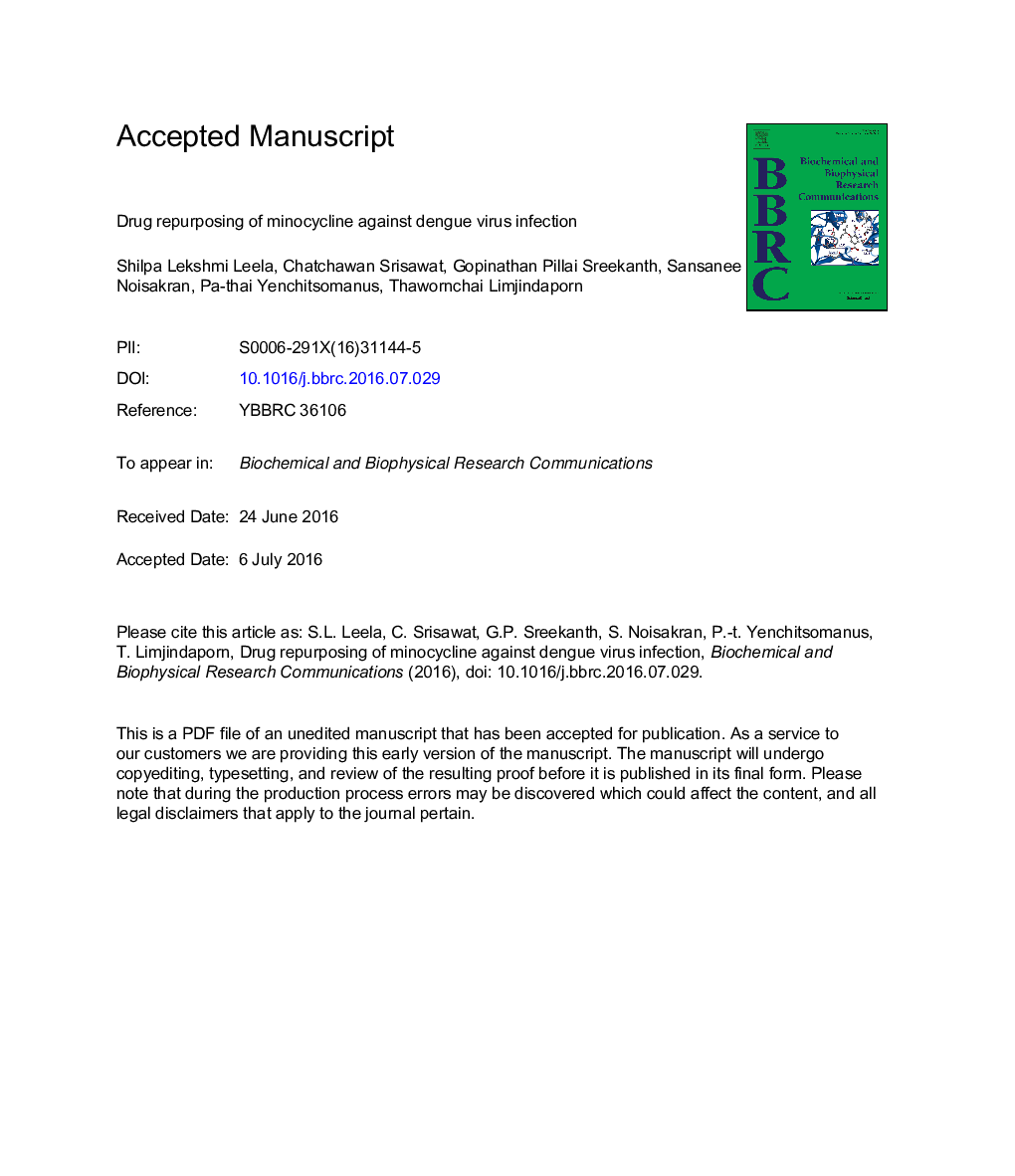| Article ID | Journal | Published Year | Pages | File Type |
|---|---|---|---|---|
| 10747901 | Biochemical and Biophysical Research Communications | 2016 | 27 Pages |
Abstract
Dengue virus infection is one of the most common arthropod-borne viral diseases. A complex interplay between host and viral factors contributes to the severity of infection. The antiviral effects of three antibiotics, lomefloxacin, netilmicin, and minocycline, were examined in this study, and minocycline was found to be a promising drug. This antiviral effect was confirmed in all four serotypes of the virus. The effects of minocycline at various stages of the viral life cycle, such as during viral RNA synthesis, intracellular envelope protein expression, and the production of infectious virions, were examined and found to be significantly reduced by minocycline treatment. Minocycline also modulated host factors, including the phosphorylation of extracellular signal-regulated kinase1/2 (ERK1/2). The transcription of antiviral genes, including 2â²-5â²-oligoadenylate synthetase 1 (OAS1), 2â²-5â²-oligoadenylate synthetase 3 (OAS3), and interferon α (IFNA), was upregulated by minocycline treatment. Therefore, the antiviral activity of minocycline may have a potential clinical use against Dengue virus infection.
Related Topics
Life Sciences
Biochemistry, Genetics and Molecular Biology
Biochemistry
Authors
Shilpa Lekshmi Leela, Chatchawan Srisawat, Gopinathan Pillai Sreekanth, Sansanee Noisakran, Pa-thai Yenchitsomanus, Thawornchai Limjindaporn,
